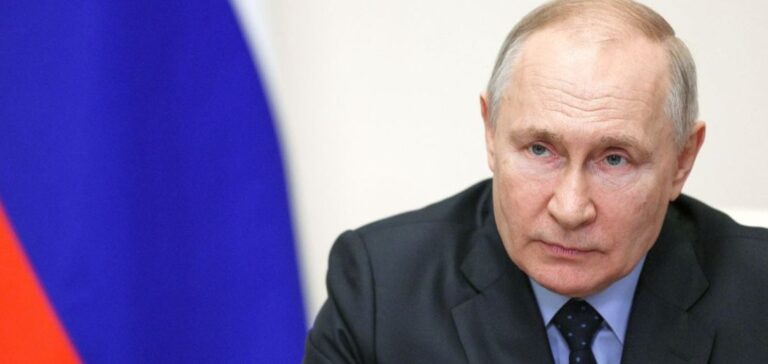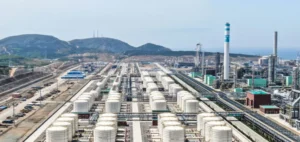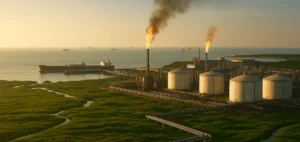Russian exports of petroleum products fell significantly in April, reaching their lowest levels since the pandemic was confined in 2020. According to data provided by S&P Global Commodities at Sea, marine loadings of diesel, fuel oil, naphtha and other refined products rose slightly in the second half of the month to average 1.94 million barrels per day (b/d), marking a decline of 360,000 b/d on March, and almost 700,000 b/d below January levels.
Impact of drone attacks
Russia’s refining capacities have been seriously affected by a series of Ukrainian drone attacks specifically targeting its western refineries. These attacks not only damaged facilities, but also led to the shutdown of the 116,000 b/d Orsk refinery for two weeks in April due to flooding. On April 27, one of the world’s largest drone attacks was launched, shooting down 66 drones over the Krasnodar region of Russia, damaging the Ilsky and Slavyansk refineries.
Repair and resilience
Russia is rapidly repairing damaged units. Currently, 600,000 b/d of refining capacity remains offline, down from a peak of over 1 million b/d the previous month. The Russian oil industry has demonstrated a remarkable ability to quickly restore affected capacity, often in as little as three weeks, according to S&P Global analysts.
Market impacts and adaptation strategies
Despite the attacks, Russia has put in place measures to limit the impact. This includes increasing operations at unaffected refineries and prioritizing shipments of petroleum products by rail to meet regional fuel shortages. In addition, the attacks had a moderate effect on market prices, with diesel crack spreads narrowing, reflecting a situation of sufficient stocks to cover weakened demand. Diesel crack spreads against Rotterdam-dated Brent fell below $16/b on May 1, down from $18.50/b in April.
Exports to India and other markets
The latest data show that Russian crude oil exports to India jumped to an 11-month high in April, reaching almost 2 million b/d, a significant increase of 350,000 b/d on the previous month. This contrasts with a reduction in flows to China and Turkey, illustrating a dynamic readjustment of export markets in response to sanctions and logistical constraints. In response to ongoing threats to shipping in the Red Sea, the volume of Russian oil at sea has declined since recent record levels, despite support for longer voyages around the Cape of Good Hope.
The crisis in Russian oil exports in April highlights the vulnerability and resilience of the country’s energy infrastructure. Despite the ongoing challenges posed by drone attacks and extreme weather conditions, Russia has shown an impressive ability to adapt quickly. The implications for world energy markets remain significant, with a particular focus on the evolution of trade relations and Russia’s ability to maintain its exports in a tense geopolitical context.





















